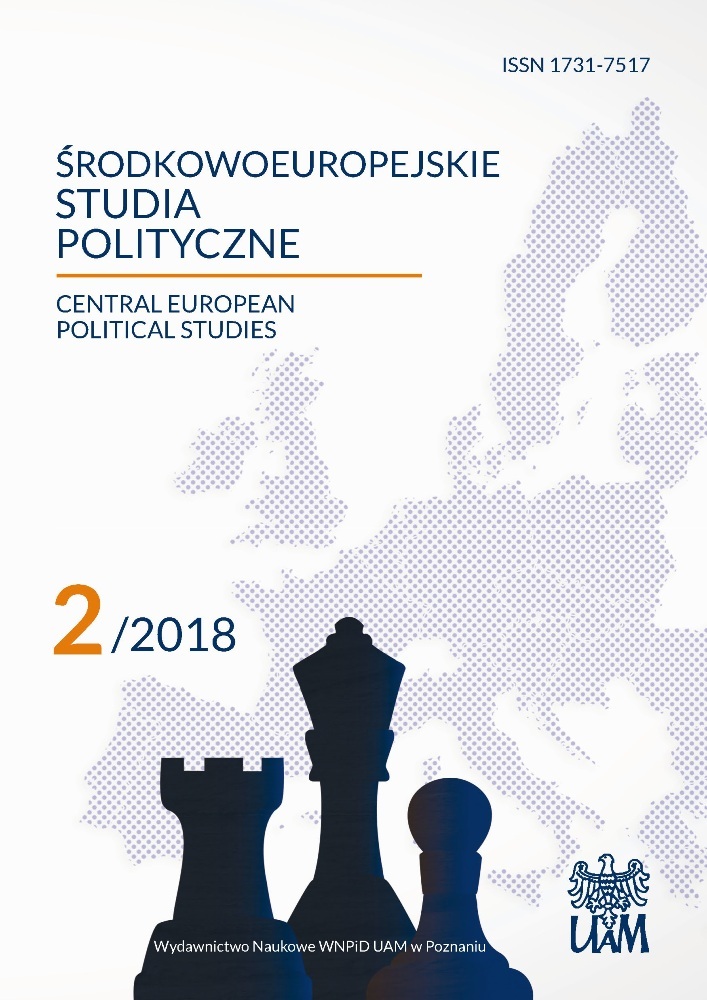Abstract
The main goal of the study is to discuss regulatory protectionism that distorts and restricts contemporary international trade. Therefore, it is important to harmonize
trade standards and recognize them internationally, especially with respect to technical barriers. In the 21st century, bilateral agreements are becoming increasingly important. They already account for over 70% of liberalized trade. The role of the G20 group has clearly increased. Both the WTO and G20 should jointly undertake and coordinate efforts to develop the principles that would promote not only international trade of developed countries but also increase access of developing countries to the global market. The promotion of global trade rules will increase the legitimacy of the G20 group and the reformed global trade system whereas its modified management within the WTO framework, which will take into account the specific interests of individual countries, may contribute to further dynamic development.
References
Agricultural Trade and its Importance (2006), European Commission, Brussels.
Birchfield V. (2008), Dueling Imperialsim or Principled Policies? A Comparative Analysis of EU and US Aproaches to Trade and Development, w: North andSouth in the World Political Economy, red. R Reuveny, W. R. Thompson, Blackwell Publishing Ltd., Malden USA–Oxford UK–Carlton Victoria Australia.
Broszkiewicz M. (2012), Alternative Investment in China – a Solution for Investment at a Time of the Modern Financial Crisis, „Ekonomia Economics” Publishing House of Wrocław University of Economics, Wrocław, nr 3(20), s. 71–82.
Christian H. (2008), Determinants of Agricultural Protection in an International Perspective: The Role of Political Institutions, 12th European Congress of Agricultural Economists, Ghent.
Dwyer I., Guyomard H. (2008), International trade, agricultural policy reform and the multifunctionality of EU agriculture. A framework for analysis, w: Trade Agreements, Multifunctionality and EU Agriculture, red. E. Kaditi, J. Swinnen, Centre for European Policy Studies, Brussels.
Eichengreen B., O’Rourke K. (2010), What do the new data tell us, Vox 8 March, and A tale of two depressions: now and then, Vox, 6 April 2009, www.voxeu.org/index.php?q=node/324#jun09.
Elsing M. (2006), The EU’s Common Commercial Policy, Macmillan, Burlington.
Flory T. (1999), L’organisation mondiale du commerce. Droit institutionel et substantiel, Etablissements Emile Bruylant, Bruxelles.
Hoekman B. M., Kostecki M. M. (2001), The political economy of the world trading system; the WTO and beyond, Oxford University Press, Oxford.
Huges B. B., Irfan M. T. (2008), Assessing Strategies for Reducing Global Poverty, w: North and South in the World Political Economy, red. R. Reuveny, W. R. Thompson, Blackwell Publishing Ltd., Malden USA–Oxford UK–Carlton Victoria Australia.
Kelton M. (2012), Global Trade, w: R. Devetak, A. Burke, J. George, An Introduction to International Relation, Cambridge University Press, New York.
Lester S., Barbee I. (2013), The Challenge of Cooperation: Regulatory Trade Barriers in the Transatlantic Trade and Investment Partnership, „Journal of International Economic Law”, vol. 16, Issue 4, s. 847–867.
Michałek J. J., Wilkin J. (2008), Wstępna ocena konsekwencji niepowodzenia sesji ministerialnej Doha (lipiec 2008) dla instrumentów stosowanych w ramach WPR, w: Polityka Unii Europejskiej po 2013 roku, UKIE, Warszawa 2008.
Nielson D. L. (2003), Supplying Trade Reform: Political Institutions and Liberalization in Middle-Income Presidetial Democracies, „American Journal of Political Science” 47.
Olson M. (1986), The Exploitation and Subsidization of Agriculture in Developing and Developed Countries, w: Agriculture in a Turbulent World Economy, red. A. Maunder, U. Renborg, Aldershot, Gower, U.K.
Puślecki Z. W. (2016a), Bilateral trade agreements and the rise of global supply chains, „Journal of Economic & Financial Studies”, USA, vol. 04. nr 05: October, s. 17–23.
Puślecki Z. W. (2016b), Transatlantic Cooperation Regarding China, „US-China Law Review”, David Publishing Company, New York, USA, vol. 13, nr 7, July, s. 522–552.
Ragazzi I., Egger M. (2010), Nach der Doha Runde. Elemente fuer eine neue WTO Agenda, Dokument 19. Marz, http://www.alliancesud.ch/de/publicationen,downloads/dokument-19-2010-web.pdf.
Schreyer M. L., Metz L., (2009), Europejska Wspólnota Energii Odnawialnej, Studium wykonalności, t. 3, Wydawca: Fundacja im. Heinricha Boella.
Stiglitz J. E., Charlton A. (2007), Fair trade-szansa dla wszystkich, przeł. A. Szeworski, PWN, Warszawa.
Task Force on Commodity Futures Markets. Report to the G20, OICU/IOSCO, Technical Commitee of the International Organization of Securities Commission, June 2010 (2010). http://www.iosco.org/library/pubdocs/pdf/IOSCOPD340.pdf, maj 2012.
World Trade Organization (2010a), International trade statistics 2010, WTO, Geneva.
World Trade Organization (2010b), World trade report 2010: trade in natural resources, Geneva, http://www.wto.org/english/res_e/booksp_e/anrep_e/world_trade_report10_e.pdf.

